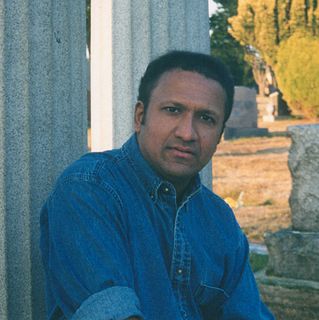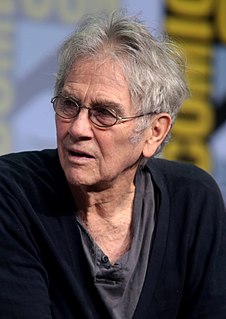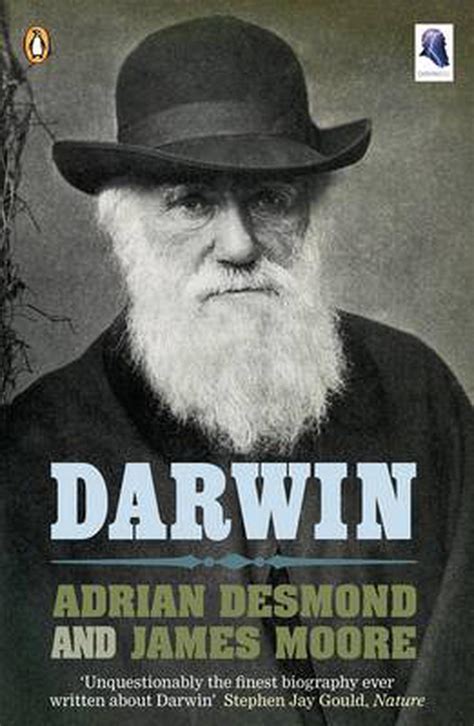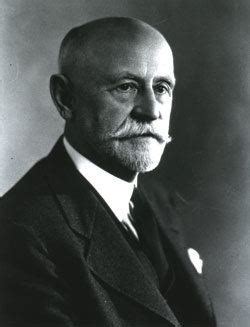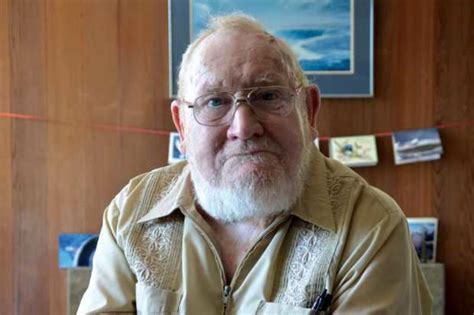Top 55 Huxley Quotes & Sayings
Explore popular Huxley quotes.
Last updated on April 14, 2025.
You must not say that this cannot be, or that that is contrary to nature. You do not know what Nature is, or what she can do; and nobody knows; not even Sir Roderick Murchison, or Professor Huxley, or Mr. Darwin, or Professor Faraday, or Mr. Grove, or any other of the great men whom good boys are taught to respect. They are very wise men; and you must listen respectfully to all they say: but even if they should say, which I am sure they never would, 'That cannot exist. That is contrary to nature,' you must wait a little, and see; for perhaps even they may be wrong.
Even time is a concept. In reality we are always in the eternal present. The past is just a memory, the future just an image or thought. All our stories about past and future are only ideas, arising in the moment. Our modern culture is so tyrannized by goals, plans, and improvement schemes that we constantly live for the future. But as Aldous Huxley reminded us in his writings, "An idolatrous religion is one in which time is substituted for eternity...the idea of endless progress is the devil's work, even today demanding human sacrifice on an enormous scale.
Science is being daily more and more personified and anthromorphized into a god. By and by they will say that science took our nature upon him, and sent down his only begotten son, Charles Darwin, or Huxley, into the world so that those who believe in him, &c.; and they will burn people for saying that science, after all, is only an expression for our ignorance of our own ignorance.
Mr. [Aldous] Huxley has been the alarming young man for a long time, a sort of perpetual clever nephew who can be relied on to flutter the lunch party. Whatever will he say next? How does he think of those things? He has been deplored once or twice, but feeling is in his favor: he is steadily read. He is at once the truly clever person and the stupid person's idea of the clever person; he is expected to be relentless, to administer intellectual shocks.
This passion, so unordered and yet so potent, explains the capacity for teaching that one frequently observes in scientific men of high attainments in their specialties-for example, Huxley, Ostwald, Karl Ludwig, Virchow, Billroth, Jowett, William G. Sumner, Halsted and Osler-men who knew nothing whatever about the so-called science of pedagogy, and would have derided its alleged principles if they had heard them stated.
Writers like Aldous Huxley and George Orwell have imagined the sort of scientific utopia which is coming to pass, but already their nightmare fancies are hopelessly out of date. A vast, air-conditioned, neon-lighted, glass-and-chromium broiler-house begins to take shape, in which geneticists select the best stocks to fertilise, and watch over the developing embryo to ensure that all possibilities of error and distortion are eliminated.
The scientific method," Thomas Henry Huxley once wrote, "is nothing but the normal working of the human mind." That is to say, when the mind is working; that is to say further, when it is engaged in correcting its mistakes. Taking this point of view, we may conclude that science is not physics, biology, or chemistry — is not even a ”subject " — but a moral imperative drawn from a larger narrative whose purpose is to give perspective, balance, and humility to learning.
One of the most intensely unlikeable figures of the twentieth century, fanatical anti-Semite, enemy of labour unions and proud recipient of medals from Nazi Germany, where Hitler held him in veneration, Henry Ford was also an employer who paid his workers more than his competitors, an innovator who pioneered the assembly line and a visionary whose part in the creation of the twentieth century was so great that Aldous Huxley, in his Brave New World, prefigured a society whose calendar was divided into BF and AF-Before Ford and After Ford.
I brought something back from those experiences [with drugs] which made me softer, open to other ideas. And I've learned from listening to other people talk about their experiences, from listening to Bill Hicks or reading Terrence McKenna or Aldous Huxley and Timothy Leary. But there's always some dumb cop out there who says "We don't need another legal drug and there's psychological addiction and blah blah blah."
[Thomas Henry] Huxley, I believe, was the greatest Englishman of the Nineteenth Century—perhaps the greatest Englishman of all time. When one thinks of him, one thinks inevitably of such men as Goethe and Aristotle. For in him there was that rich, incomparable blend of intelligence and character, of colossal knowledge and high adventurousness, of instinctive honesty and indomitable courage which appears in mankind only once in a blue moon. There have been far greater scientists, even in England, but there has never been a scientist who was a greater man.
[Aldous Huxley] compared the brain to a 'reducing valve'. In ordinary perception, the senses send an overwhelming flood of information to the brain, which the brain then filters down to a trickle it can manage for the purpose of survival in a highly competitive world. Man has become so rational, so utilitarian, that the trickle becomes most pale and thin. It is efficient, for mere survival, but it screens out the most wondrous part of man's potential experience without his even knowing it. We're shut off from our own world.
When people are ready to, they change. They never do it before then, and sometimes they die before they get around to it. You can’t make them change if they don’t want to, just like when they do want to, you can’t stop them. “A man is what he thinks about all day long.” [Ralph Waldo Emerson] Every man who knows how to read has it in his power to magnify himself, to multiply the ways in which he exists, to make his life full, significant and interesting. Aldous Huxley
Too often critics seem more intent on seeking new ways to alter Congress than to truly learn how it functions. They might well profit from the advice of Thomas Huxley, who said a century ago: Sit down before facts as a little child, be prepared to give up every preconceived notionor you shall learn nothing.
What Orwell feared were those who would ban books. What Huxley feared was that there would be no reason to ban a book, for there would be no one who wanted to read one. Orwell feared those who would deprive us of information. Huxley feared those who would give us so much that we would be reduced to passivity and egoism. Orwell feared that the truth would be concealed from us. Huxley feared the truth would be drowned in a sea of irrelevance.
Much of the geographical work of the past hundred years... has either explicitly or implicitly taken its inspiration from biology, and in particular Darwin. Many of the original Darwinians, such as Hooker, Wallace, Huxley, Bates, and Darwin himself, were actively concerned with geographical exploration, and it was largely facts of geographical distribution in a spatial setting which provided Darwin with the germ of his theory.
I used to wonder: Is Huxley right or is Orwell right? It turns out they're both right. First you get the new world state and endless diversions as you are disempowered. And then, as we are watching, credit dries up, and the cheap manufactured goods of the consumer society are no longer cheap. Then you get the iron fist of Oceania, of Orwell's 1984.
Medals are great encouragement to young men and lead them to feel their work is of value, I remember how keenly I felt this when in the 1890s. I received the Darwin Medal and the Huxley Medal. When one is old, one wants no encouragement and one goes on with one's work to the extent of one's power, because it has become habitual.
And no one has the right to say that no water-babies exist, till they have seen no water-babies existing; which is quite a different thing, mind, from not seeing water-babies; and a thing which nobody ever did, or perhaps will ever do. But surely ... they would have put it into spirits, or into the Illustrated News, or perhaps cut it into two halves, poor dear little thing, and sent one to Professor Owen, and one to Professor Huxley, to see what they would each say about it.
By profession a biologist, [Thomas Henry Huxley] covered in fact the whole field of the exact sciences, and then bulged through its four fences. Absolutely nothing was uninteresting to him. His curiosity ranged from music to theology and from philosophy to history. He didn't simply know something about everything; he knew a great deal about everything.
I profoundly admire Aldous Huxley, both for his philosophy and uncompromising sincerity. But I disagree with his advocacy of 'the chemical opening of doors into the Other World', and with his belief that drugs can procure 'what Catholic theologians call a gratuitous grace'. Chemically induced hallucinations, delusions and raptures may be frightening or wonderfully gratifying; in either case they are in the nature of confidence tricks played on one's own nervous system.
And I will add this point of merely personal experience of humanity: when men have a real explanation they explain it, eagerly and copiously and in common speech, as Huxley freely gave it when he thought he had it. When they have no explanation to offer, they give short dignified replies, disdainful of the ignorance of the multitude.

